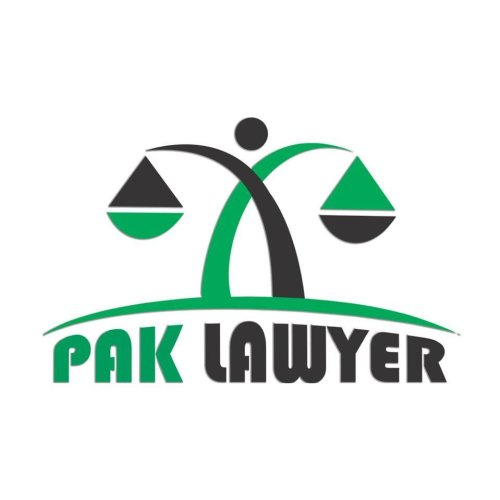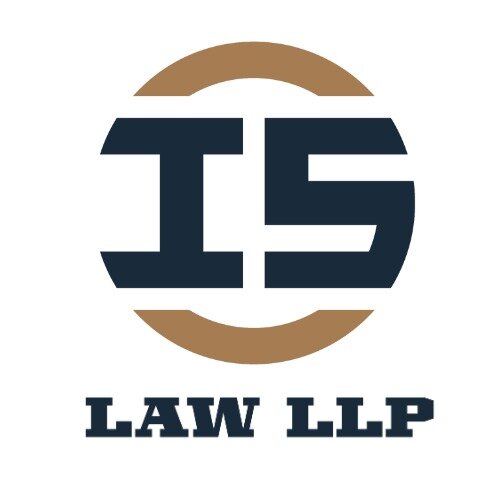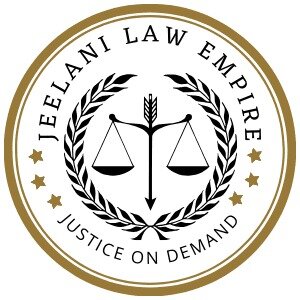Best Debt & Collection Lawyers in Pakistan
Share your needs with us, get contacted by law firms.
Free. Takes 2 min.
Or refine your search by selecting a city:
List of the best lawyers in Pakistan
Pakistan Debt & Collection Legal Questions answered by Lawyers
Browse our 1 legal question about Debt & Collection in Pakistan and read the lawyer answers, or ask your own questions for free.
- I need to send a legal notice of fraud
- I have given loan to a family and now they are not paying it back even after 3 years of wait. I need to send them a legal notice to settle the case in court if they will not pay it back. Is ot possible to first use legal notice... Read more →
-
Lawyer answer by Law Office Attorney SVETISLAV STOJANOSKI, LL.M.
Yes it is possible to first use legal notice.
Read full answer
About Debt & Collection Law in Pakistan
The field of Debt & Collection in Pakistan deals with the legal processes involved in the recovery of debts. This includes the procedures lenders can utilize to recover owed money and the rights of borrowers. Various laws govern debt recovery and collection practices, aimed at balancing the interests of creditors with the protection of debtors. Debt-related matters are primarily handled through civil litigation, with significant involvement of the banking sector and financial institutions.
Why You May Need a Lawyer
Seeking the help of a lawyer in matters of Debt & Collection can be crucial in several situations:
- When you are facing harassment or unfair practices from creditors or collection agencies.
- If you are being sued for a debt or require a defense in court.
- When you need to negotiate a settlement or restructure payment terms.
- If you require assistance in understanding complex legal documents related to debt.
- To ensure that your rights as a debtor are protected under the law.
Local Laws Overview
Debt & Collection in Pakistan is governed by several key pieces of legislation:
- Contract Act, 1872: Governs the contractual agreements and obligations between lenders and borrowers.
- Negotiable Instruments Act, 1881: Deals with the promissory notes, bills of exchange, and cheques that may be involved in debt arrangements.
- Recovery of Loans by Banks (Special Courts) Ordinance, 1979: Provides a framework for financial institutions to recover loan money.
- Financial Institutions (Recovery of Finances) Ordinance, 2001: Speaks to the powers and procedures that banks and financial institutions must follow in the recovery of finances.
- Consumer Protection Laws: Protects consumers from unfair practices by creditors and collection agencies.
Frequently Asked Questions
1. What rights do I have if a creditor brings a lawsuit against me?
You have the right to be notified, appear in court, defend yourself, and consult with a lawyer. You can also negotiate to settle outside of court.
2. Can a creditor seize my assets directly without court approval?
No, creditors typically require a court order before they can seize assets or garnish wages.
3. What should I do if I receive a notice from a collection agency?
Verify the authenticity of the notice, assess the debt claim, and consider consulting a lawyer if the claim is disputed or large.
4. How long can a debt be legally pursued in Pakistan?
The time limit varies, generally being governed by the Limitation Act, 1908, which stipulates different periods depending on the type of debt.
5. Can a debt collector contact me at work?
Debt collectors can contact you at work unless specifically prohibited by your employer, but harassment is not permitted at any location.
6. What constitutes harassment by a debt collector?
Harassment includes threats, repeated calls to inconvenience you, use of abusive language, or misrepresentation.
7. Are verbal agreements about payment admissible in court?
Verbal agreements can be challenging to enforce; written agreements are generally required for legal claims.
8. What options do I have if I can’t pay my debt?
Consider negotiating with creditors, restructuring payments, or seeking legal advice to explore options like debt consolidation.
9. Can I appeal a court decision regarding a debt?
Yes, you can appeal within the timeframe provided by law, by filing a case in a higher court if you believe the decision was incorrect.
10. What should I include in a written agreement concerning debt repayment?
Include terms of payment, interest rates (if applicable), default consequences, and cancellation terms.
Additional Resources
Here are some additional resources to consider if you seek more information or assistance:
- State Bank of Pakistan: For guidelines related to banking practices.
- Ombudsman Offices: For free assistance on matters involving financial institutions.
- Local Legal Aid Societies: Provide assistance for low-income individuals seeking legal help.
- Federal Investigation Agency (FIA): Can be contacted for cases involving financial fraud or serious violations.
Next Steps
If you require legal assistance for a debt and collection issue, consider the following steps:
- Identify the nature of your debt problem and gather all relevant documentation.
- Consult a qualified lawyer specializing in debt recovery for initial advice.
- Explore settlement or negotiation as an option before litigation.
- Understand your rights and the legal processes involved in debt collection in Pakistan.
- Proactively manage your financial obligations to reduce the risk of future debt issues.
Taking these steps can help you effectively navigate legal challenges related to debt and collection in Pakistan.
Lawzana helps you find the best lawyers and law firms in Pakistan through a curated and pre-screened list of qualified legal professionals. Our platform offers rankings and detailed profiles of attorneys and law firms, allowing you to compare based on practice areas, including Debt & Collection, experience, and client feedback.
Each profile includes a description of the firm's areas of practice, client reviews, team members and partners, year of establishment, spoken languages, office locations, contact information, social media presence, and any published articles or resources. Most firms on our platform speak English and are experienced in both local and international legal matters.
Get a quote from top-rated law firms in Pakistan — quickly, securely, and without unnecessary hassle.
Disclaimer:
The information provided on this page is for general informational purposes only and does not constitute legal advice. While we strive to ensure the accuracy and relevance of the content, legal information may change over time, and interpretations of the law can vary. You should always consult with a qualified legal professional for advice specific to your situation.
We disclaim all liability for actions taken or not taken based on the content of this page. If you believe any information is incorrect or outdated, please contact us, and we will review and update it where appropriate.
Browse debt & collection law firms by city in Pakistan
Refine your search by selecting a city.

















